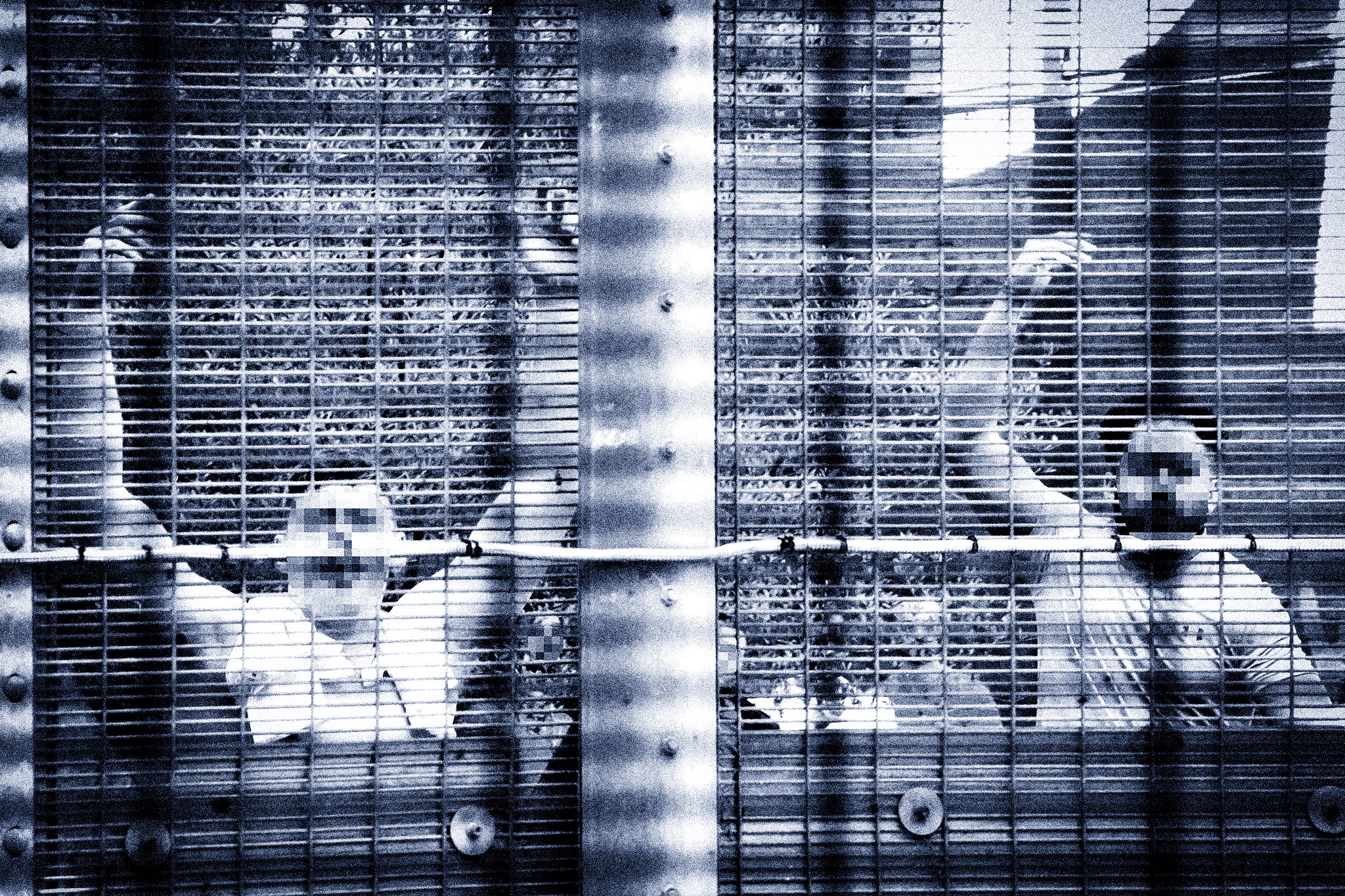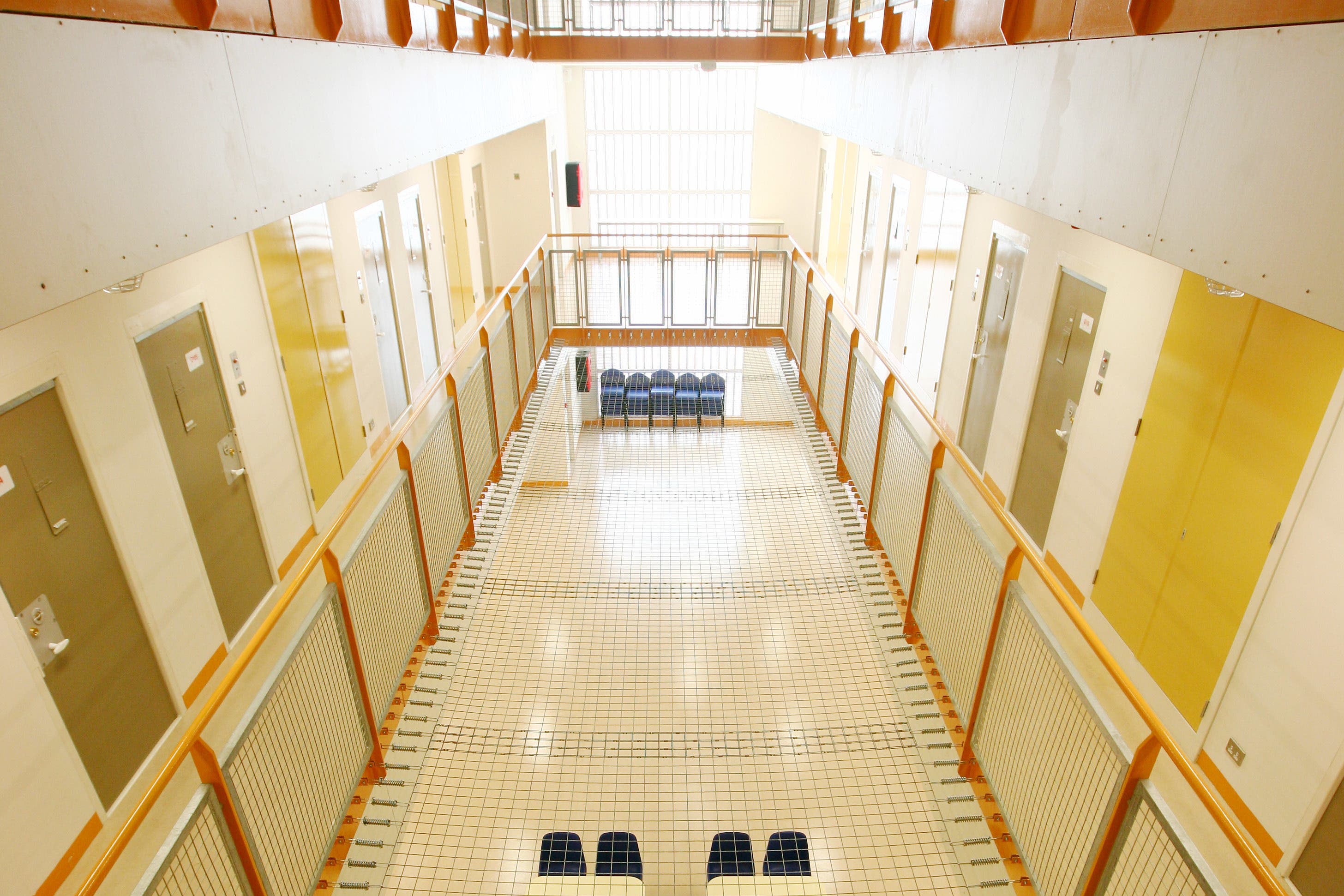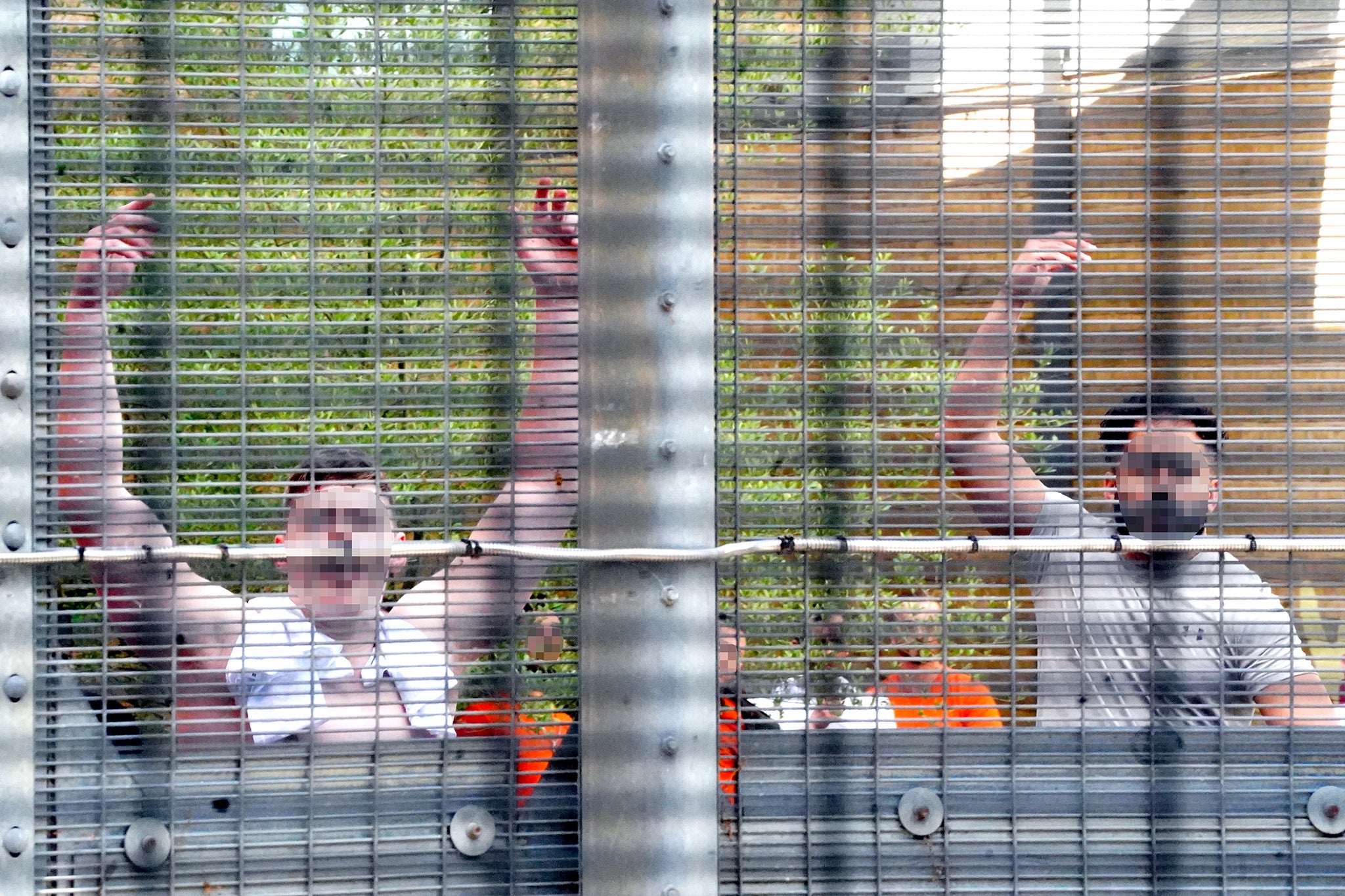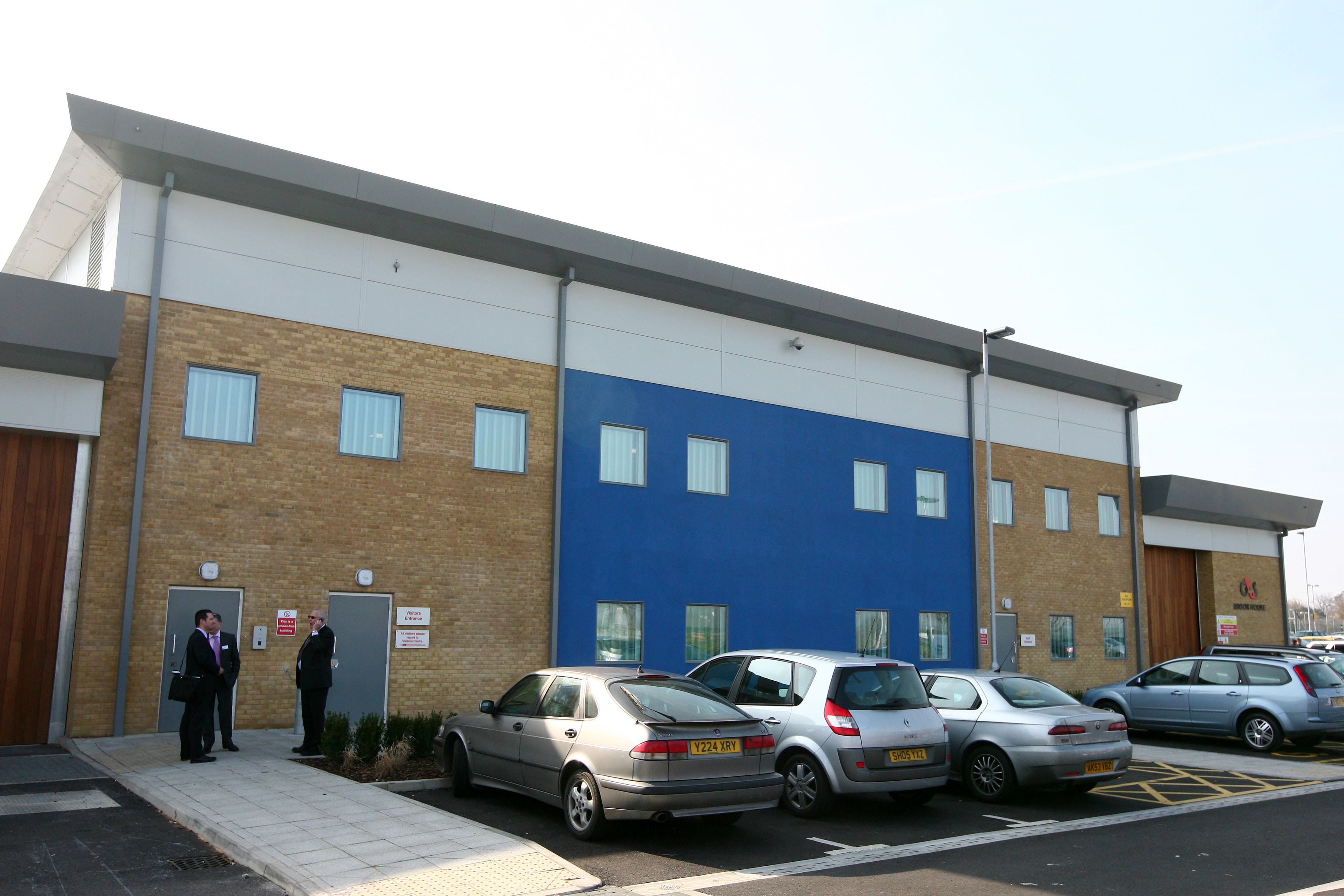Guards at UK detention centre choked, abused and forced migrants naked from cells
Migrants were taken from their cells naked and dangerous restraint techniques used, the inquiry found

Your support helps us to tell the story
From reproductive rights to climate change to Big Tech, The Independent is on the ground when the story is developing. Whether it's investigating the financials of Elon Musk's pro-Trump PAC or producing our latest documentary, 'The A Word', which shines a light on the American women fighting for reproductive rights, we know how important it is to parse out the facts from the messaging.
At such a critical moment in US history, we need reporters on the ground. Your donation allows us to keep sending journalists to speak to both sides of the story.
The Independent is trusted by Americans across the entire political spectrum. And unlike many other quality news outlets, we choose not to lock Americans out of our reporting and analysis with paywalls. We believe quality journalism should be available to everyone, paid for by those who can afford it.
Your support makes all the difference.Officers at a UK detention centre choked, abused and forced migrants naked from their cells amid a “toxic culture” where detainees were mistreated in “prison-like” conditions, a bombshell inquiry has revealed.
An 800-page report into conditions at Brook House Immigration Removal Centre in West Sussex found guards used physical violence to “punish” detainees, while “unacceptable, often abusive” behaviour was dismissed as “banter”.
In one “terrifying” incident detailed in the report, a detention officer at the formerly G4S-run site near Gatwick airport placed his hands around a distressed detainee’s neck and said: “You f*****g piece of s**t, because I’m going to put you to f*****g sleep.”
Other shocking incidents included men being forcibly moved from their cells when naked or near-naked, while officers were found to repeatedly use dehumanising language, including mocking phrases such as: “If he dies, he dies”.
The report, which looked at conditions at the centre between April and August 2017, also found:
- 19 breaches of human rights laws relating to torture and inhuman or degrading treatment
- Examples of staff using “abusive, racist and derogatory language” towards detainees
- Evidence of men being held in “harsh” and “prison-like” conditions, including being forced to share dirty cells with poor ventilation and unscreened toilets
- Examples of staff inflicting pain “inappropriately” and using equipment such as riot shields and balaclavas in an “intimidating” way
Chair Kate Eves said she “rejected the narrative” from the Home Office and G4S that the incidents at Brook House were the result of a “small minority” of G4S staff.
She also said she had been “particularly troubled” by the evidence of some of those staff who remain working at Brook House, noting a “lack of reflection even amongst those who now hold senior positions”.
“This casts doubt over how far the cultural changes that have been described to me have really taken root. I fear that there is still some way to go,” she said.
Ms Eves called for wide-ranging changes to ensure “people do not suffer in the same way as those at Brook House did”, including the introduction of a 28-day time limit for detention.
She also called for renewed orders on the use of force, and urged the Home Office to issue an immediate instruction to contractors “that force must be used only as a last resort, using approved techniques”.
Ms Eves warned that more detainees in immigration centres could face inhumane treatment unless her 33 recommendations are implemented in full.
“I believe that if the recommendations aren’t implemented wholesale and that there’s not a public accountability for how those recommendations are going to be implemented that there is very much a risk that the same could happen (again).” In particular, she pressed the need for a 28-day time limit on detention.
She said: “The time limit of 28 days on immigration detention in a prison-like environment is incredibly important. All the evidence that I’ve seen demonstrates that. I’m not the first person to have made that recommendation. I think it is very important that that is taken account of.”
Labour’s shadow immigration minister Stephen Kinnock said some of the evidence to the inquiry was “utterly harrowing” and showed the government had “delivered neither control nor compassion”.
Campaigners also condemned the government over the findings. Medical Justice, a charity that works with detainees to uphold their legal and medical rights, said the evidence from the inquiry showed that the Home Office had presided over “inhuman and degrading treatment of people in its care”.
Director Emma Ginn said: “It’s a travesty that it’s taken a public inquiry for detained people’s harrowing testimony to be taken seriously. They have at last been vindicated.
“Urgent action is needed; the evidence could not be clearer.”
Amnesty UK said the Brook House Inquiry findings are a “damning indictment of how immigration detention is run in this country”.

The inquiry was launched in November 2019 following a BBC Panorama programme in September 2017 that aired harrowing undercover footage of the alleged abuse of detainees by detention officers.
The report found 19 incidents over a five-month period that were capable of amounting to mistreatment under Article 3 of the European Convention on Human Rights.
This Article states that: “No one shall be subjected to torture or to inhuman or degrading treatment or punishment.”
Ms Eves said: “That I found this number of incidents took place within such a limited timeframe of five months is of significant concern.
“Under the Home Office, and its contractor G4S, Brook House was not sufficiently decent, secure or caring for detained people or its staff at the time these events took place.
“An environment flourished in which unacceptable treatment became more likely.”
Ms Eves noted dangerous restraint techniques being used and examples of derogatory comments, including from staff to a man who was recovering from medical treatment following a drug overdose.
One detainee, who had been identified as extremely vulnerable to self-harm and suicide, was subjected to threatening language and denied access to shower which prevented him from taking part in a cleansing ritual that was part of his religion, the report said
Ms Eves noted the often heightened vulnerability of someone who might end up in such a detention centre.
“There is no higher role for the state than as a guardian of those who are detained and in its care,” she said.

“For people who do not have citizenship, their precarious status makes them inherently more vulnerable, and factors such as language barriers or poor health can intersect to make them yet more susceptible to harm.”
The report was critical of the site itself, which was designed to the specifications of a category B prison, including “tall razor wire fencing”, despite the detainees not being prisoners. Witnesses giving evidence to the inquiry described it as “unfit for purpose” and said that it did not have the facilities to house detainees for “more than a few days”, despite many spending a significantly longer time there.
There was overcrowding at the facility and detained people often lacked access to the internet with “unnecessary restrictions imposed on websites and, too often, computers were broken”.

Drug use was a “significant problem” at Brook House, in particular the psychoactive substance spice. There was a “sense of defeat” from staff about how to treat the problem and how to deal with detainees who had taken the drug.
The report contains 33 recommendations that, if implemented, could provide “a more humane, compassionate, and professional environment for immigration detention”.
One of the key recommendations made is that the government should introduce a new policy that detainees should only be kept at immigration removal centres for a maximum of 28 days.
This raises questions about the viability of the Home Office’s plans to expand the use of immigration detention in the UK.
The recommendation comes only weeks after the passing of the Illegal Migration Act, which gives the home secretary the power to detain people indefinitely.
The chair has urged the Home Office and other recipients to publish their responses to the report in six months.
She added: “It is my sincere hope that more than mere lip service will be paid to this report. The events that occurred at Brook House cannot be repeated.”
G4S has since stopped running Brook House, with outsourcing giant Serco having taken over.
A Home Office spokesperson said the abuse was “unacceptable”, but said the government had since made “significant improvements to uphold the welfare and dignity of those detained”.
“We remain committed to ensuring safety and security in all immigration removal centres and to learn lessons from Brook House to ensure these events never happen again,” the Home Office said.
A G4S spokesperson said: “G4S has provided its full support to the Brook House Inquiry and will carefully consider the Inquiry’s recommendations.
“The vast majority of employees at Brook House Immigration Removal Centre were focused on the wellbeing of the detained people and carried out their duties to a high standard, often in exceptionally challenging circumstances.
“We were appalled when, in 2017, a number of former employees acted in a way that was contrary to our values, policies and their training and for this we are sorry. This behaviour was unacceptable and the company took swift action, including dismissing a number of individuals and commissioning an independent review carried out by Verita.”






Join our commenting forum
Join thought-provoking conversations, follow other Independent readers and see their replies
Comments